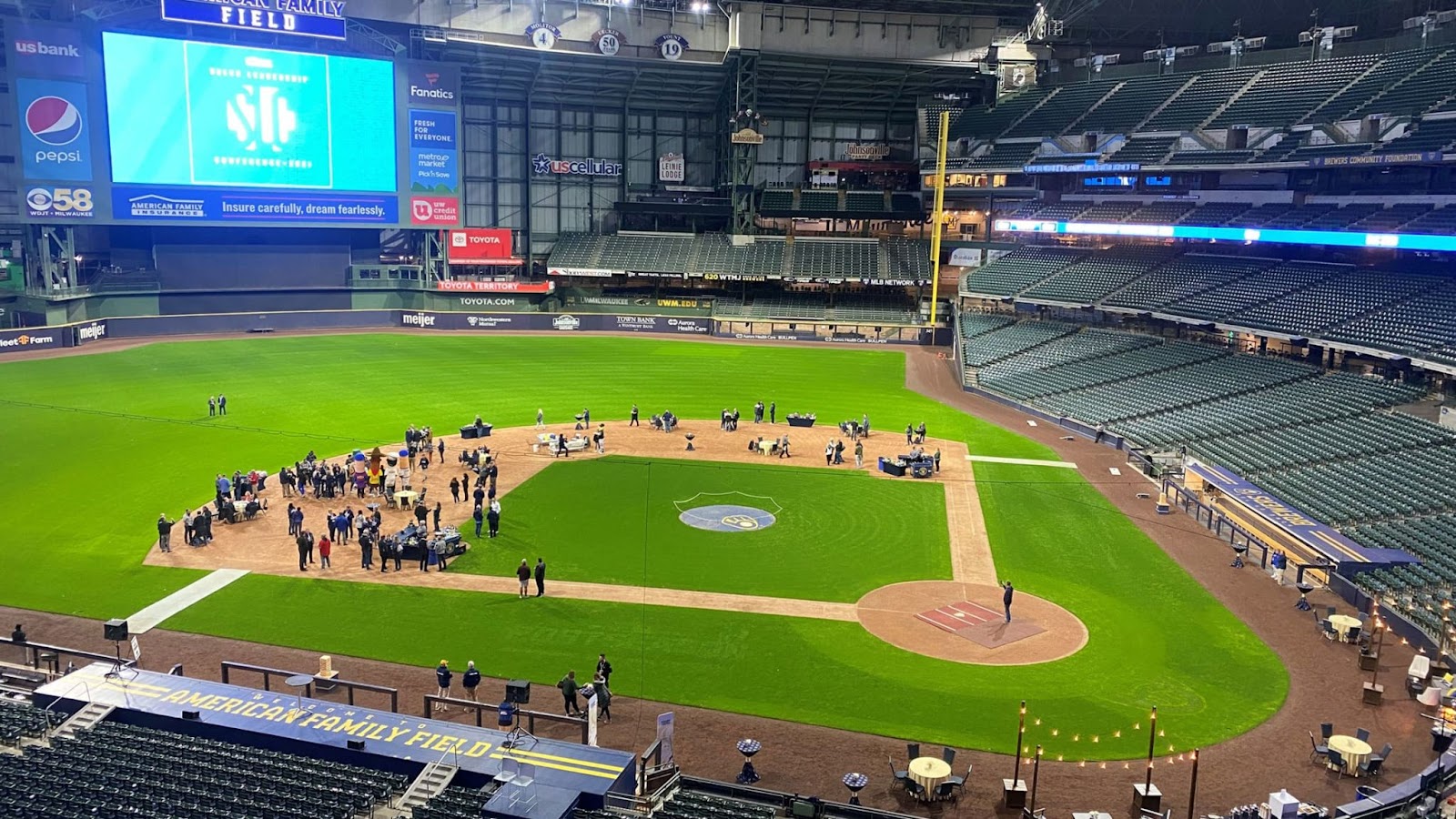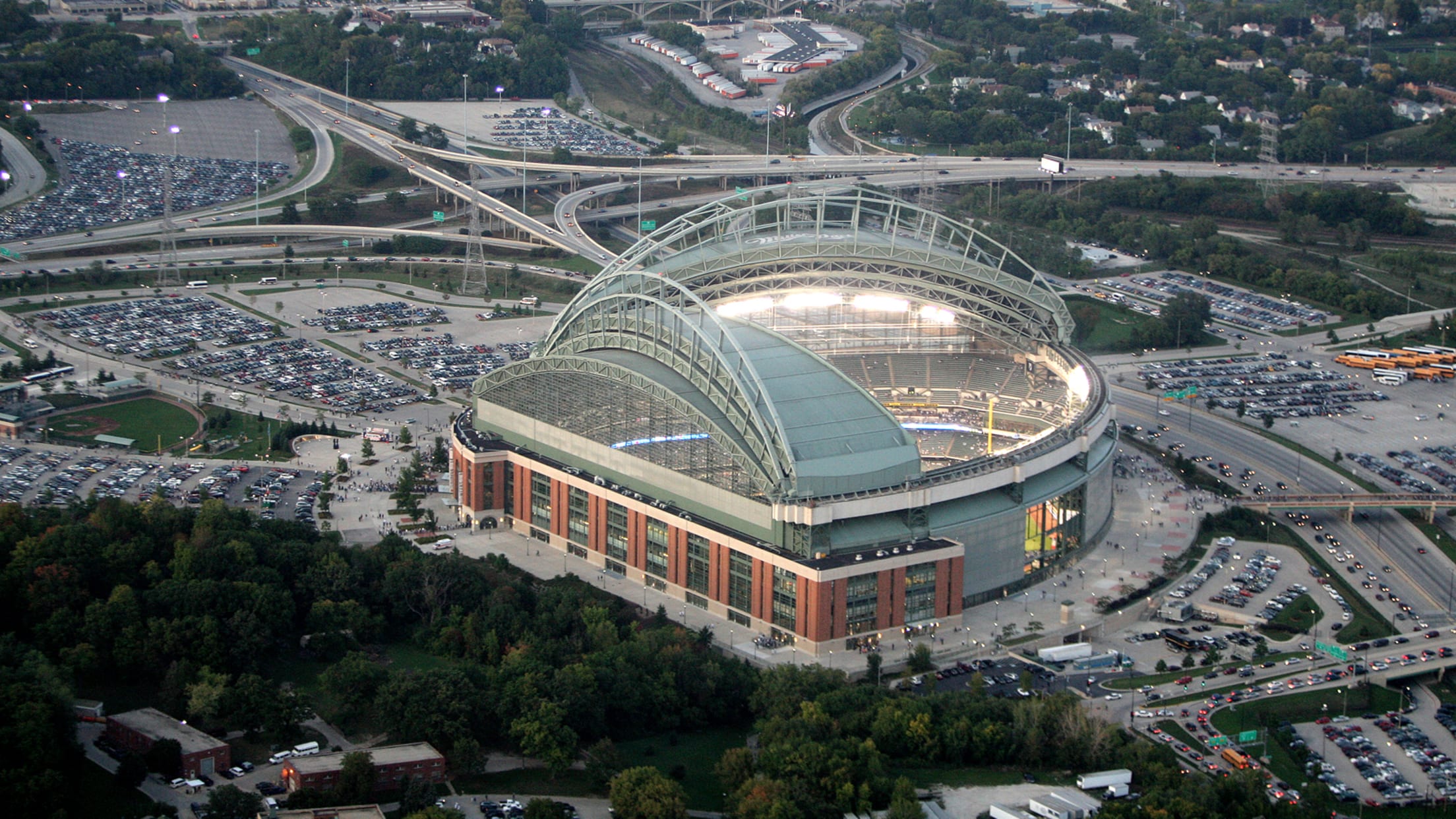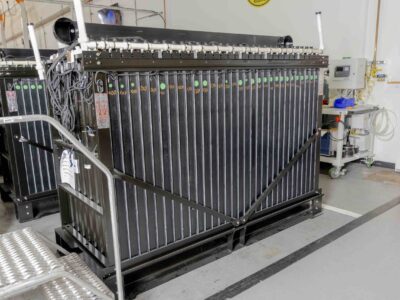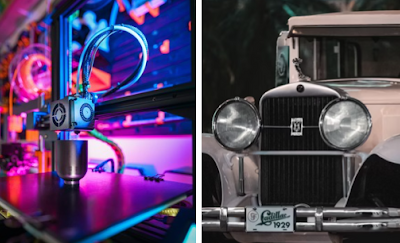“While we are honored to have achieved this designation, our commitment will continue in 2012 and beyond. We are committed to improving our efficiencies and programs and will look to keep Miller Park as an industry leader in these efforts,” said Rick Schlesinger, Milwaukee Brewers’ chief operating officer.
The statement was made after the team’s stadium, then known as Miller Park, received a silver Leadership in Energy and Environmental Design (LEED) Certification for Existing Buildings from the U.S. Green Building Council. The Brewers have lived up to this pledge.
The LEED honor was a particularly notable achievement. In 2012, the stadium was just the third Major League Baseball (MLB) ballpark to receive a LEED for Existing Buildings. However, it was the first stadium with a retractable roof to get one. The covering creates operational challenges that make it difficult to reach qualifying LEED energy and ventilation levels.
To tackle this obstacle, the Brewers initiated a retro-commissioning project that greatly improved the climate controls, HVAC equipment, and ventilation systems.
A new hi-def scoreboard required half the energy the old scoreboard needed, while a switch to more efficient plumbing fixtures lowered water usage by approximately 3 million gallons a year.
These upgrades combined with decreasing CO2 emissions by 1,153 metric tons annually; this reduction is equal to removing 220 cars off the roads a year. “Earning this designation means that we have significantly improved our sustainability and energy efficiency, and the benefits extend to the organization, our fans, partners, and the environment,” stated Bob Quinn, Brewers’ then-executive VP.

During this eco-overhaul, the stadium’s recycling effort was bolstered with 100 containers inside the ballpark and 40+ large recycling containers in the parking lots. The amount of recyclable waste rose to around 10 tons per game, achieving a 35% diversion rate. The ballpark donated unused food to local food banks and shelters. A program implemented during the second half of the 2011 season provided 7,000 pounds of food to area organizations.
The overall health quality at the stadium improved, too, by making smoking areas at least 25 feet from operable doors and windows. The team also implemented having more than half of the cleaning products meet the “Green Cleaning” criteria.
The Brewers launched the 2020s with a first-of-its-kind partnership with SC Johnson that addressed the problem of plastic waste through an innovative program involving upcycling plastic cups. Plastic cup usage, which can hit the 1 million mark a season, is one of the leading causes of waste at stadiums.
Specially marked receptacles, starting with the 2021 season, were placed around the ballpark, now known as American Family Field, to collect plastic cups and recycle them into packaging for Scrubbing Bubbles products.
This initiative represents the first time a pro sports franchise implemented this type of closed-loop recycling program tied to a specific product. American Family Field uses Scrubbing Bubbles cleaning products and SC Johnson soap and hand sanitizer dispensers to complete the loop.
Not only has Brewers management shown concern for the environment, but the players have too. In 2019, relief pitcher Brent Suter started Strike Out Waste to reduce plastic bottle waste among his teammates, the Brewers organizations, and fans.
Suter, who holds a Harvard degree in environmental science and public policy, helped involve SC Johnson and the Brewers in a campaign where the two donate to an environmental-focused, pro-athlete-founded nonprofit, Players for the Planet, every time a Milwaukee pitcher records a save.

Suter is part of the Brewers Sustainability Council that the team started in 2022, along with SC Johnson and other Brewers’ partners and outside organizations, to improve and expand sustainability practices at American Family Park. Efforts have included planting trees throughout Milwaukee and decreasing the club’s carbon footprint through the Sidelining Carbon program.
Additionally, SC Johnson has stocked the team’s locker room with reusable water bottles to minimize single-use plastic and teamed with the Brewers and EarthEcho International to provide environmental-oriented educational materials to teachers across Wisconsin.
Suter said he is excited over how this Brewers/SC Johnson partnership can “bring greater awareness to important issues like recycling and ocean plastics. We can all make a positive impact in our homes, our communities, and with this program in place, we can now make a direct impact at the ballpark.”





